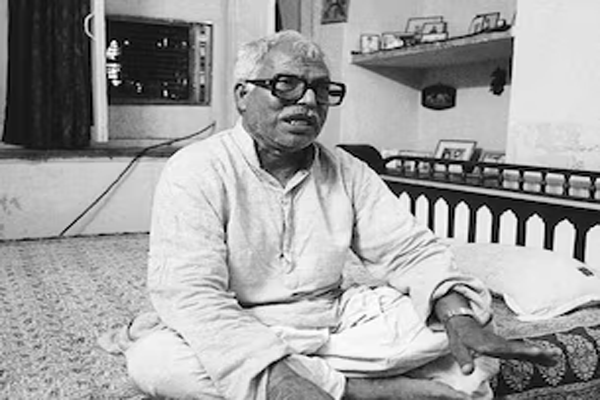In a significant tribute to a stalwart of social justice, former Chief Minister of Bihar, Karpoori Thakur, it has been announced that he will posthumously receive India’s highest civilian award, the Bharat Ratna. This recognition comes as the nation prepares to mark the 100th birth anniversary of the visionary leader who played a pivotal role in uplifting the backward classes in Bihar.
Karpoori Thakur, widely hailed as the “Jan Nayak” (People’s Hero), served as the Chief Minister of Bihar from 1977 to 1979. His political journey was marked by an unwavering commitment to promoting social justice and empowering the marginalized communities in the state. One of his landmark contributions was the implementation of the recommendations of the Mungeri Lal Commission, which focused on providing reservation benefits to the Other Backward Classes (OBCs).
The announcement from Rashtrapati Bhavan was succinct, stating, “The President has been pleased to award Bharat Ratna to Shri Karpoori Thakur (posthumously).” This acknowledgment underscores the profound impact of Thakur’s initiatives on the socio-political landscape of Bihar and the nation at large.
Reacting to the news, Prime Minister Narendra Modi expressed his delight over the decision to confer the Bharat Ratna on Karpoori Thakur. In a post on a social media platform, PM Modi called him a “beacon of social justice” and highlighted the timing of the recognition, coinciding with Thakur’s birth centenary. The Prime Minister lauded Thakur’s enduring efforts as a champion for the marginalized, emphasizing his role as a stalwart of equality and empowerment.
PM Modi further remarked, “His unwavering commitment to uplift the downtrodden and his visionary leadership have left an indelible mark on India’s socio-political fabric. This award not only honours his remarkable contributions but also inspires us to continue his mission of creating a more just and equitable society.”
Karpoori Thakur’s journey towards becoming a social justice icon began in the Samastipur district of Bihar, where he actively participated in India’s freedom struggle from a young age. His commitment to the Quit India Movement saw him incarcerated alongside other freedom fighters, embodying the spirit of the fight against colonial oppression.
Having tasted success in the 1952 elections, Thakur continued to secure victories in subsequent polls due to his modest lifestyle and his resolute dedication to social justice. His political ideology was shaped by a fervent advocacy for the rights of marginalized communities, including scheduled castes, scheduled tribes, and other backward classes.
The implementation of OBC reservation based on the Mungeri Lal Commission’s recommendations during his tenure as Chief Minister marked a pivotal moment in Indian politics. Thakur’s vision was rooted in ensuring inclusive development and equitable opportunities for all sections of society. His policies aimed at addressing historical injustices and bridging socio-economic gaps, laying the foundation for a more just and egalitarian society.
The announcement of the Bharat Ratna for Karpoori Thakur is particularly poignant as it precedes his 100th birth anniversary on January 24. This recognition serves not only as a tribute to his extraordinary legacy but also as a call to action for continued efforts in realizing the ideals he stood for.
Karpoori Thakur’s posthumous Bharat Ratna is a testament to his enduring impact on India’s socio-political landscape. As the nation commemorates his birth centenary, this prestigious award not only honors his significant contributions but also serves as a reminder of the ongoing journey towards a more inclusive and equitable society that he envisioned and tirelessly worked towards during his lifetime.













